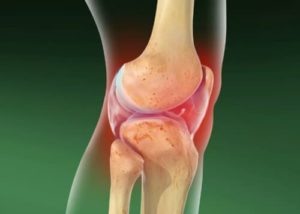The Role of Nutrition in Joint Health: Foods and Supplements for Strong Joints
The Importance of Joint Health
Before diving into the role of nutrition, it’s essential to understand why joint health matters. Joints are the connections between bones, allowing us to move freely. When joints function optimally, we can enjoy activities such as walking, running, and even simple tasks like picking up objects without pain or stiffness.
Understanding Common Joint Problems
Several joint-related issues can affect individuals, including osteoarthritis, rheumatoid arthritis, and joint injuries. These conditions can lead to pain, inflammation, and decreased joint function.
Osteoarthritis
Osteoarthritis is the most common form of arthritis, characterized by the gradual degeneration of joint cartilage and the underlying bone. It often affects weight-bearing joints like the knees, hips, and spine.
Rheumatoid Arthritis
Rheumatoid arthritis is an autoimmune disease that causes inflammation in the lining of the joints. It can affect multiple joints simultaneously and lead to joint deformities.
Joint Injuries
Accidents or sports-related injuries can damage joints, resulting in pain, swelling, and reduced mobility.
The Role of Nutrition in Joint Health

Nutrition plays a significant role in maintaining healthy joints. A well-planned diet can help reduce inflammation, provide essential nutrients, and support overall joint function.
Key Nutrients for Joint Health
Several nutrients are crucial for joint health, including:
- Omega-3 Fatty Acids: Found in fatty fish like salmon and flaxseeds, omega-3s have anti-inflammatory properties.
- Vitamin D: Essential for calcium absorption, vitamin D supports bone health.
- Calcium: Strengthens bones and may prevent joint deterioration.
- Antioxidants: Vitamins C and E, as well as selenium, can help reduce joint inflammation.
- Collagen: A protein found in connective tissues, collagen supplements may support joint health.
Joint-Friendly Foods
Incorporating joint-friendly foods into your diet can make a significant difference. Consider adding these foods to your meals:
Fatty Fish
Fatty fish like salmon, mackerel, and sardines are rich in omega-3 fatty acids, which help reduce inflammation in the joints.
Leafy Greens
Leafy greens such as spinach and kale are packed with antioxidants and vitamins that promote joint health.
Berries
Blueberries, strawberries, and raspberries are loaded with antioxidants, which can help reduce joint inflammation.
Nuts and Seeds
Almonds, walnuts, and flaxseeds are excellent sources of omega-3s and other nutrients beneficial for joints.
Supplements for Joint Support

In addition to a balanced diet, supplements can be beneficial for joint health. Consult with a healthcare professional before adding supplements to your routine, but consider these options:
Glucosamine and Chondroitin
These supplements may help reduce joint pain and slow down cartilage deterioration.
Turmeric
The active compound in turmeric, curcumin, has anti-inflammatory properties that can benefit joint health.
Conclusion
Proper nutrition is a vital component of maintaining strong and healthy joints. By incorporating joint-friendly foods and considering supplements under the guidance of a healthcare professional, you can take proactive steps to support your joint health and enjoy an active lifestyle well into the future.
